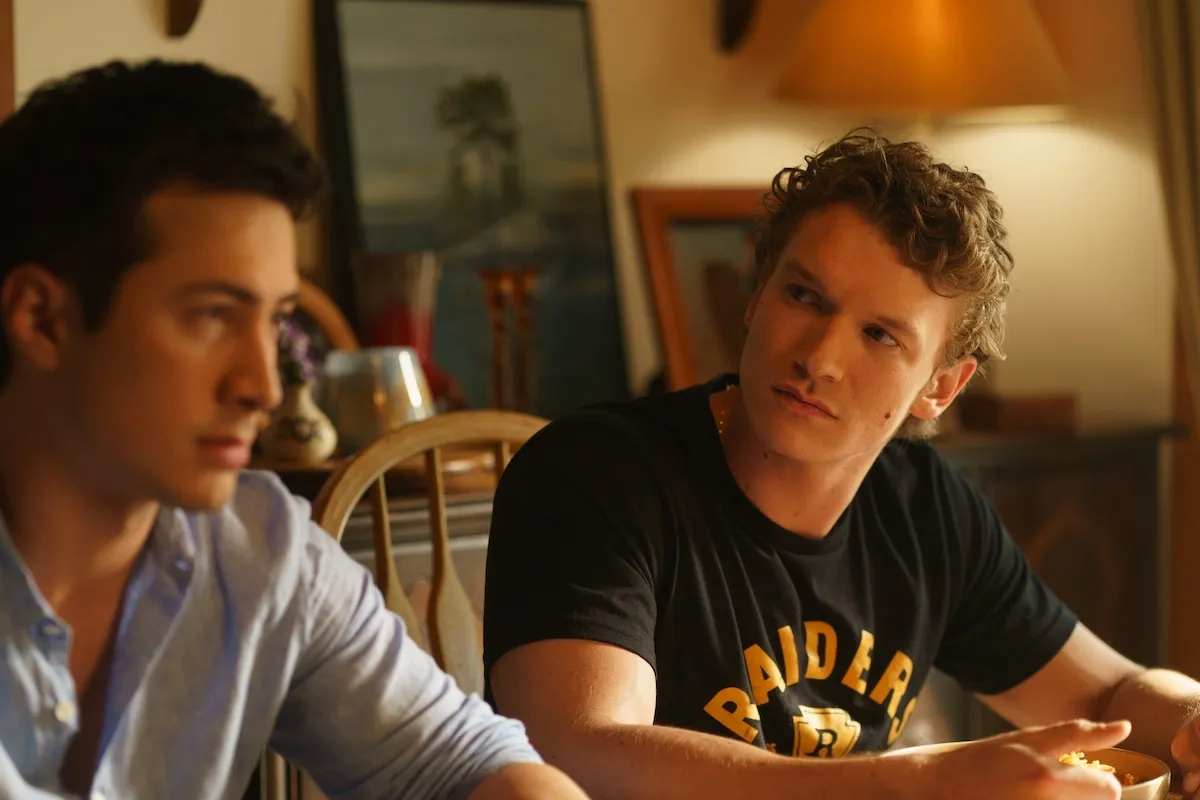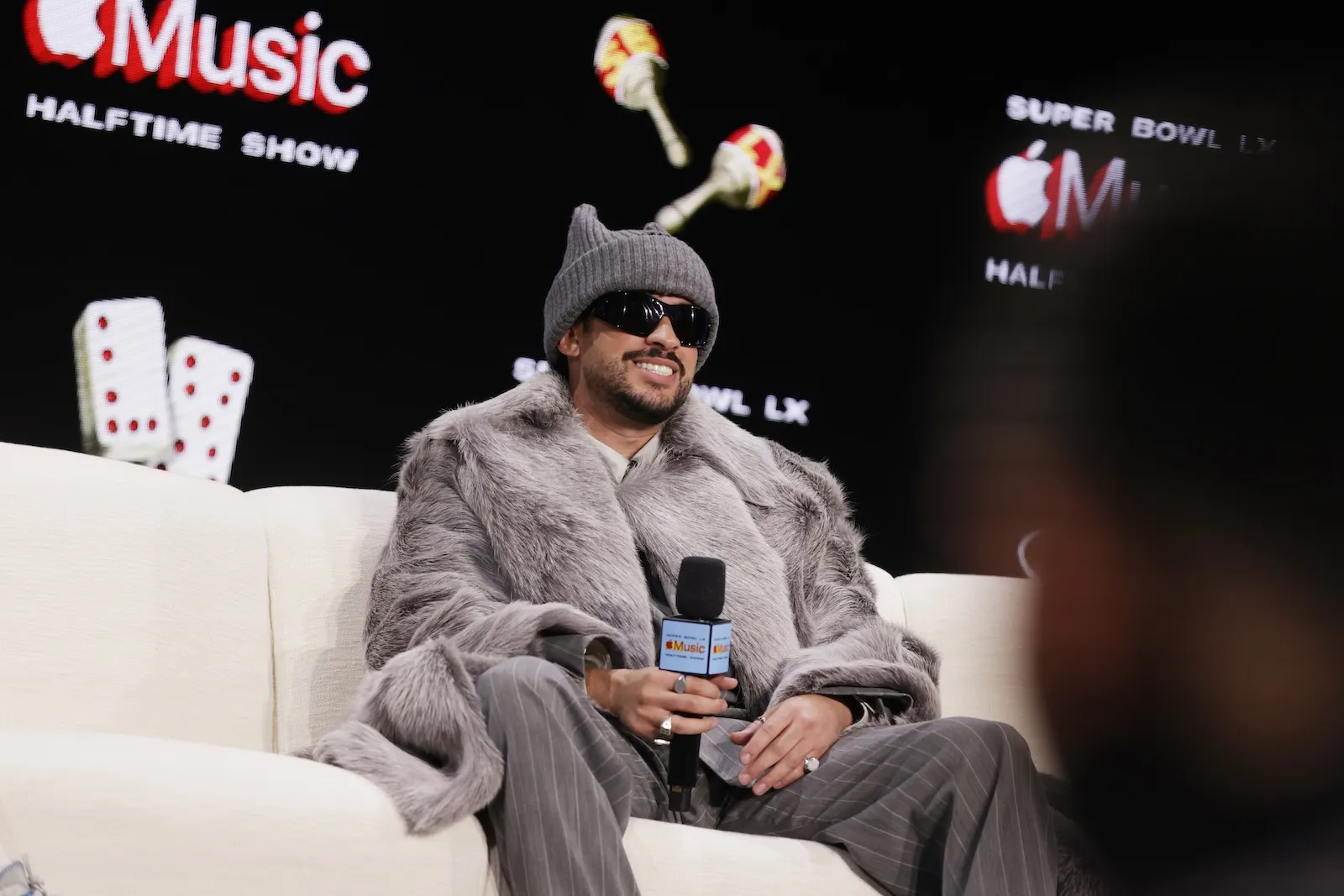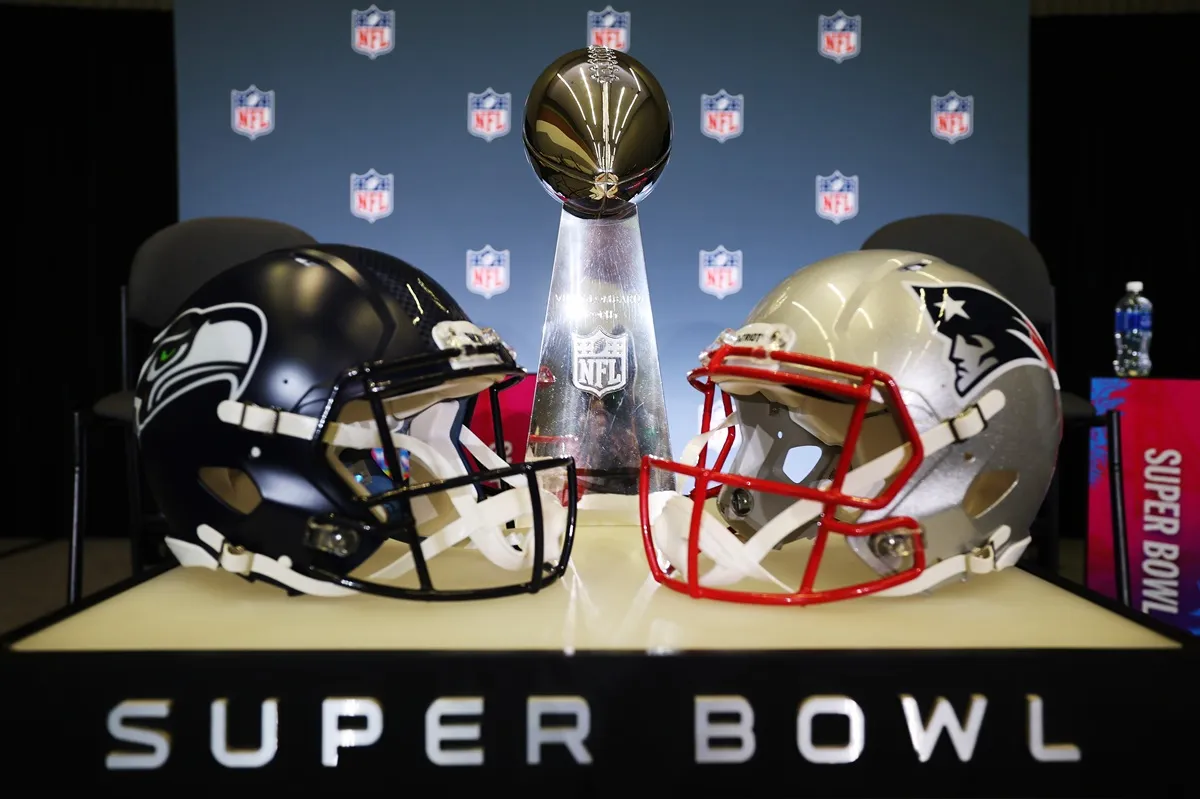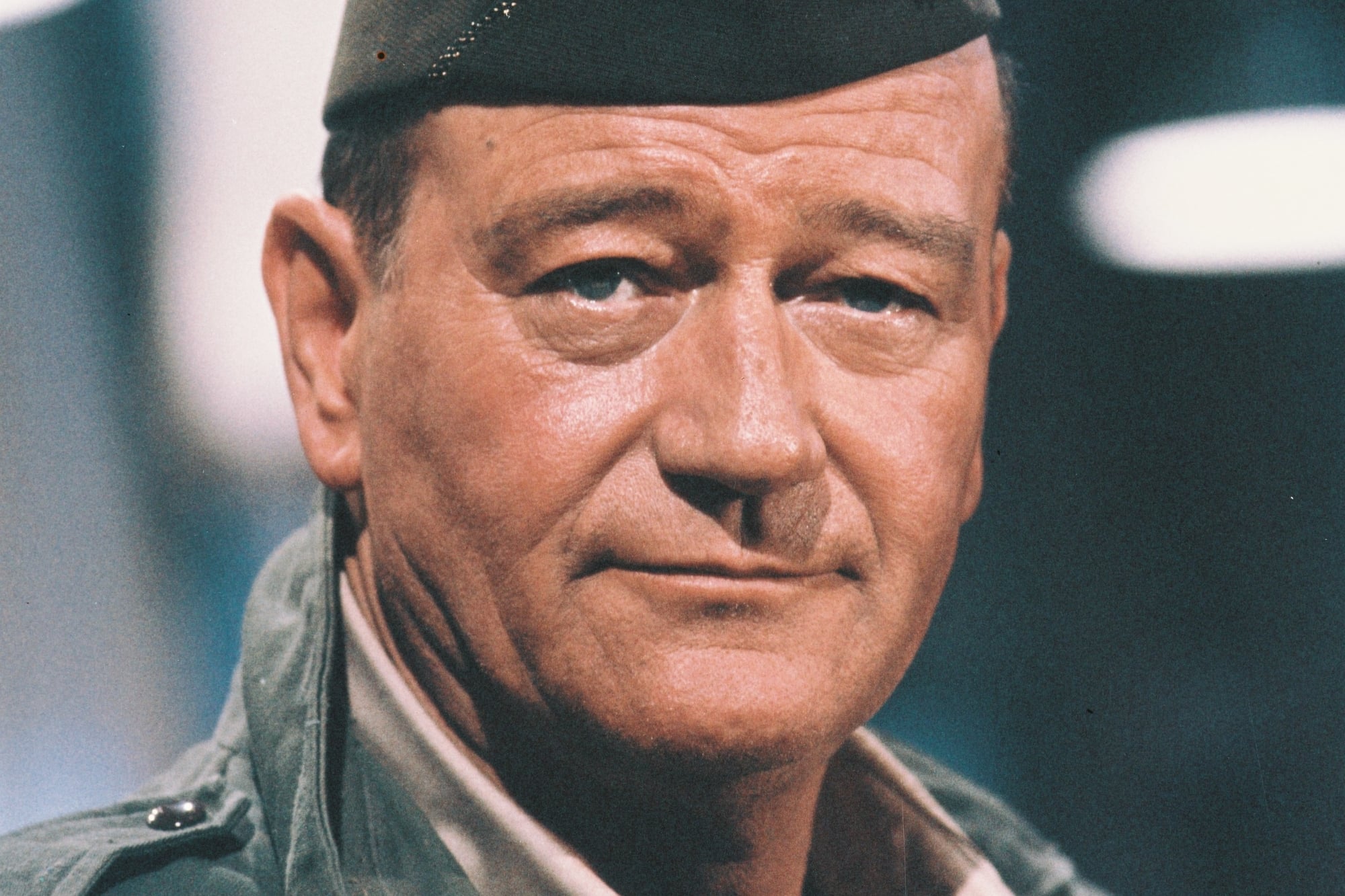
John Wayne Created His ‘Flawless’ Hero Image From a ‘Weakness He Couldn’t Hide’
Movie star John Wayne represented more than an actor on the silver screen for many of his fans, who also considered him a hero. However, his image also received quite the chip in its armor from real-life events that simultaneously impacted the way that some audiences looked at him in character. Therefore, Wayne felt it necessary to craft a “flawless” hero image to account for the “weakness” that he could never escape from.
John Wayne’s hero image took a beating from not serving in World War II
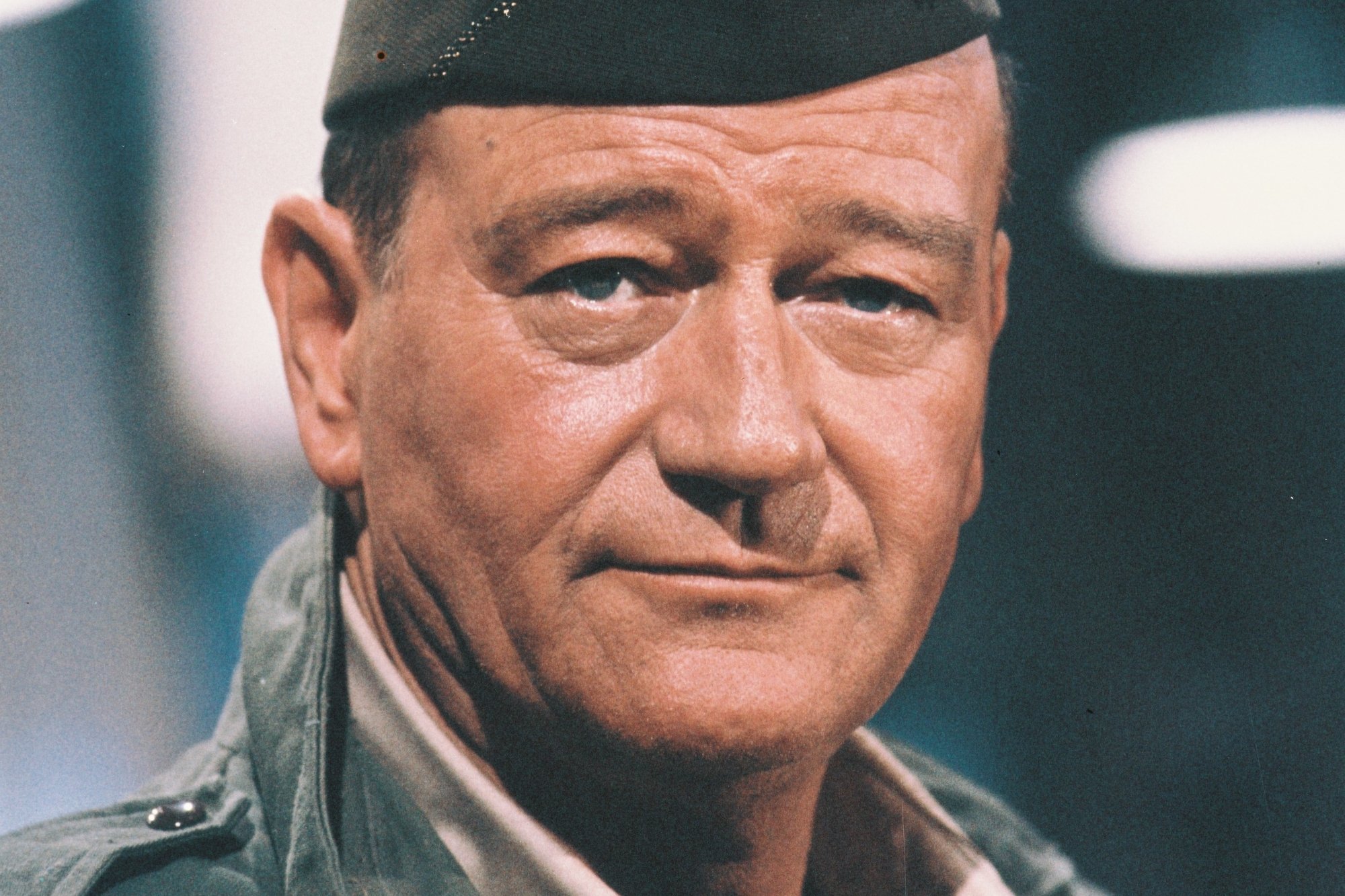
Wayne instantly associated a hero image with any person who served to fight for the United States. However, he himself never served during the draft of World War II. Meanwhile, many other major male actors across Hollywood served at this time, including Jimmy Stewart, Mel Brooks, Kirk Douglas, and Clark Gable, who Wayne thought was “an idiot.”
Many conflicting stories circulated regarding why the Western movie star was exempt from serving at this time. Nevertheless, Wayne’s career had the perfect opportunity to skyrocket, since many of his competing fellow actors were fighting in the war. He still felt a sense of patriotism and wanted to infuse these values into the films he starred in. It was Wayne’s own way of doing his service, but it undeniably left a stain on his hero image forever.
John Wayne created his ‘flawless’ hero image from his real-life war insecurity
According to Carolyn McGivern’s book, John Wayne: A Giant Shadow, he considered this imperfection in his hero image a “terrible embarrassment.” He never denied not participating in the war itself, but he emphasized the hard work that he put into his career to serve another purpose.
“Mine became the task of holding high and ever visible the value that everyone was fighting for,” Wayne said. He saw his movies as more than propaganda, but a way to provide both entertainment and motivation for all those experiencing a dark time during the war.
Wayne was a perfectionist, so it pained him to carry a “weakness he couldn’t hide.” Therefore, he felt that he needed to twist that flaw into a positive. Wayne wanted to become a “flawless hero” on the silver screen, infusing it into all of his characters.
McGivern wrote that expressing his own weakness that he didn’t serve actually further strengthened his image by accepting it. He became associated as the “ultimate warrior involved in the ‘Just’ war, the defender of his nation and the whole of the free world.”
He embraced nationalism in his roles
Wayne further embraced this hero mentality in more than just the Western movies which he became most famous for. Sands of Iwo Jima embraced another side of him that ultimately landed him his first Oscar nomination, playing a tough-as-nails marine sergeant who earns the respect of his men.
He further embraced this heroism in roles such as The Alamo and The Green Berets, both of which were passion projects of his. Regardless of the era, he always put his characters’ image above all else. Wayne went as far as rejecting fellow Western movie star Clint Eastwood’s take on the genre.
